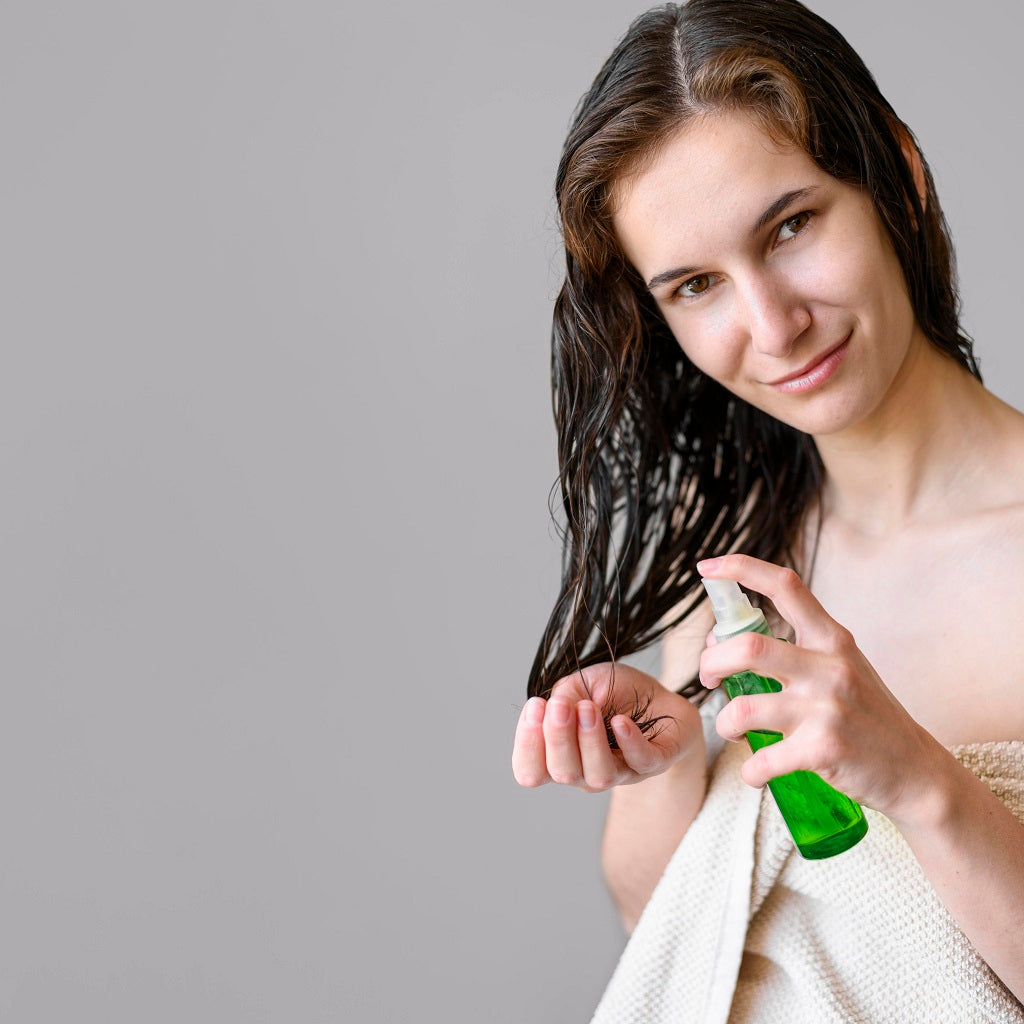Cleansing, Toning, and moisturizing (CTM) is the skincare mantra that many beauty enthusiasts have been following for years. We’ve been religiously following these 3 steps as a part of our self-pamper routine on a daily basis, just to see some drastic improvements in our skin over time. But, let’s step back and find out if this routine really works, and do we really have to incorporate all three steps to make sure that our ethereal glow bedazzles everyone. Long story short, it’s important that we try and decipher the functions of the toner, in our daily regime. Is it just another marketing gimmick designed to lure consumers into buying an additional product, or does it really work? Let’s find out!
Few people in our team tried to be adventurous and skipped applying toner for a month. Can you imagine what happened to us going without a toner for so many days? Well… *drumrolls* Nothing..!! None of us experienced any change in our skin, after letting go of the T from our CTM routine.
So the main question arises, do skin toners actually contribute towards improving the texture of the skin? Are they designed as a redundant additional step to our skincare routine to make us spend some extra bucks? Well, we’ll find out in a bit. Read ahead!
Also Read : Guide To Beginners' Skincare
Before jumping to conclusions we thought that instead of abandoning toner once and for all, why not consult a pro. So we consulted a renowned skincare expert to know whether skin toners are just an addition to your skincare routine or are it really beneficial for your skin. But before getting into that, let’s learn some basics about toners.
What Exactly Does A Toner Do?
Toner is generally applied after cleansing the skin. Initially, the purpose of applying a toner was to pH balance the skin. According to our skincare expert, nowadays pH-balanced cleansers are available, so toners are no longer required in our skincare routines.
However, our skincare expert adds that apart from pH balancing the skin, toner has other skincare benefits as well. The best toner for your skin is the one that eliminates the excess residue which remains on the skin even after cleansing, gently exfoliates your skin, improves the barrier function of the skin, and has a soothing effect at the same time.
Check Out The Ingredients In Your Toner
A toner containing glycolic acid or lactic acid gently exfoliates your skin while those containing rose water or aloe vera helps to calm down your inflamed skin. A toner containing salicylic acid- a decongestant, unclogs the clogged pores and effectively controls excess oil production.
Our skincare expert adds that toners do not have an imperative part in your skincare regime, but can be used effectively for targeting a specific skin concern, based on the ingredients present in the toner. Choose a toner depending on your skincare concern, but the key to finding the best toner for your skin type is to know which ingredients you should avoid and which ingredients to look for in your toner. Avoid alcohol-based toners as they can dry out your skin.
What Ingredients To Look For In Your Toner?
Our skincare expert adds that if you like to include toner in your skincare regime, then choose one determined by your skin type and skin concern.
1. Toner For Normal To Dry Skin
If you have dry skin, look for hydrating ingredients such as hyaluronic acid which acts as a powerful humectant, keeping your skin hydrated for a long time. Alcohol-based toners are a big no as they can exacerbate dry skin conditions.
Also Read : What makes Hyaluronic Acid A God-Sent for Skin Hydration
2. Toner For Sensitive Skin
As per our skincare expert, people with sensitive skin should look for hydrating ingredients such as aloe vera and glycerine. Ideally, toner for the face should contain hydrating and skin-soothing ingredients such as green tea extract, cucumber, rose water, chamomile which has a soothing action on the itchy, inflamed skin.
Pure rose water is the best and most effective natural toner for the face, especially for people with sensitive skin types. It keeps your skin hydrated and calms down inflamed skin.
Avoid toners containing synthetic fragrances and alcohol, as they may irritate sensitive skin.
3. Toner For Oily Skin & Acne-Prone Skin
While choosing toner for oily skin, check the label and look out for terms such as non-comedogenic and oil-free. Those with oily and acne-prone skin should choose their toner carefully, choosing one that contains ingredients like lactic acid, glycolic acid, and salicylic acid that gently sloughs off dead skin cells, debris, and grime. Gradually, you will notice a visible reduction in large open pores and breakouts.
Also Read : This Skin-Friendly Acid Can Change Your Skincare Game
4. Toner For All Skin Type
Dermatologists suggest looking for powerful antioxidants such as Vitamin C, E in your toner. Hydrating ingredients also play a vital role in the toner as it helps to keep your skin moisturized. Hydrating ingredients and antioxidants provide anti-ageing benefits to the skin as well.
However, it is important to note that nowadays most of the moisturizers and hydrating serums available in the market contain active ingredients, so even if you reduce the number of products by just one, you will still enjoy the same skincare benefits. In other words, toners are not necessary for skincare, instead, you should focus on cleansing, moisturizing, exfoliating, and applying sunscreen.
If you wish to retain toner in your skincare regime, you can use it once daily, either in the morning or at night, as per your convenience.
If you have healthy and problem-free skin, you can skip toner from your skincare routine. A toner is worth considering only when you want to target any specific skin concern. Apart from toner, there are other skin care products such as micellar water which serve the same purpose.
Disclaimer: All the content on anveya.com/blogs is solely for information. It is not intended to be a substitute for professional medical advice, diagnosis or treatment. Always seek the advice of your physician or a qualified health care provider. The information, suggestion or remedies mentioned on this site are provided without warranty of any kind, whether express or implied.



